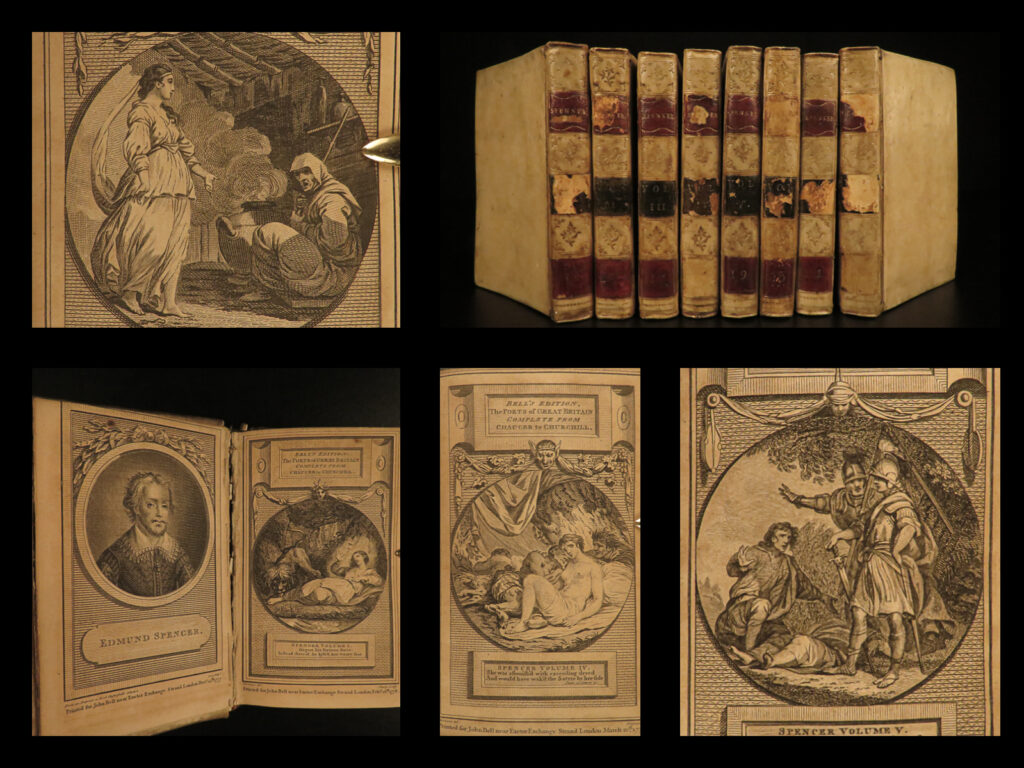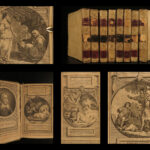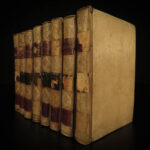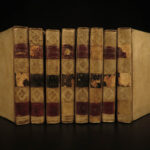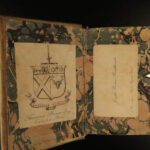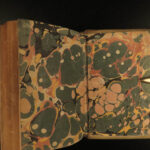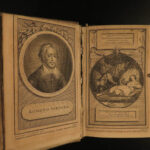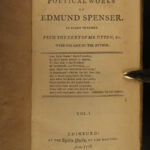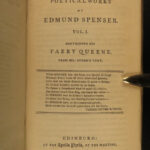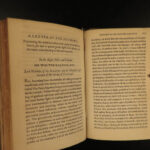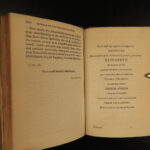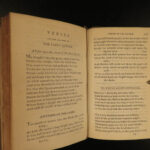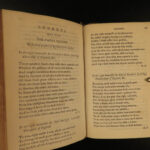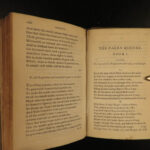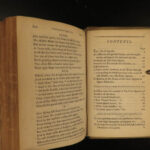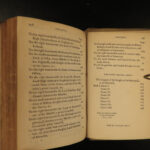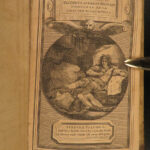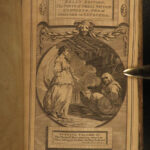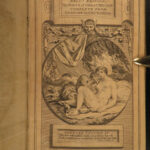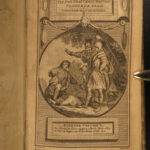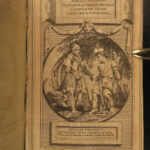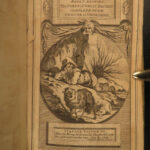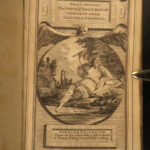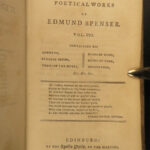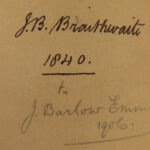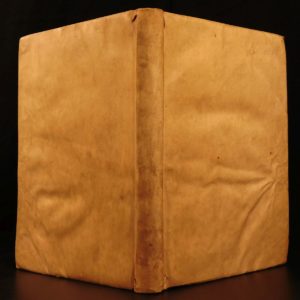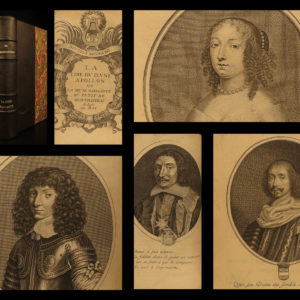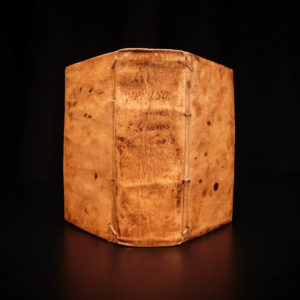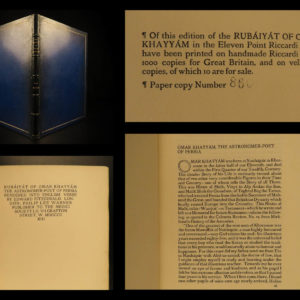1778 Fairy Queen Edmund Spenser Poetry Faerie Queene Vellum 8v SET w/ Provenance
“For there is nothing lost, that may be found, if sought.”
― Edmund Spenser, The Faerie Queene
Edmund Spenser is one of the most well-known 16th-century English poets. His most-famous poem, ‘The Faerie Queene’ is one of fantasy and allegory that celebrated the Tudors and Queen Elizabeth. Spenser explores human emotion, consciousness, and conflict and drew much of his influence from Italian greats Ariosto and Tasso. He embodied Elizabethan values and British history, but he also wanted to have literary freedom balancing history and myth. Samuel Johnson was well-versed with ‘The Faerie Queene’ as it was a ‘useful source for obsolete and archaic words’ as he was organizing his ‘Dictionary’.
This 1787 edition of the poetical works of Spenser was published as part of John Bell’s edition of ‘The Poets of Great Britain.’ This set featured ‘The Faerie Queene’ as well as a fine biographical sketch of Spenser himself.
1778 Fairy Queen Edmund Spenser Poetry Faerie Queene Vellum 8v SET w/ Provenance
“For there is nothing lost, that may be found, if sought.”
― Edmund Spenser, The Faerie Queene
Edmund Spenser is one of the most well-known 16th-century English poets. His most-famous poem, ‘The Faerie Queene’ is one of fantasy and allegory that celebrated the Tudors and Queen Elizabeth. Spenser explores human emotion, consciousness, and conflict and drew much of his influence from Italian greats Ariosto and Tasso. He embodied Elizabethan values and British history, but he also wanted to have literary freedom balancing history and myth. Samuel Johnson was well-versed with ‘The Faerie Queene’ as it was a ‘useful source for obsolete and archaic words’ as he was organizing his ‘Dictionary’.
This 1787 edition of the poetical works of Spenser was published as part of John Bell’s edition of ‘The Poets of Great Britain.’ This set featured ‘The Faerie Queene’ as well as a fine biographical sketch of Spenser himself.
Item number: #15352
Price: $750
SPENSER, Edmund
The poetical works of Edmund Spenser … From the text of Mr. Upton, &c. With the life of the author.
London : Printed for J. Bell, 1778.
Details:
- Collation: Complete with all pages; 8 volumes
- 9 frontispiece engravings
- References: Lowndes 2477; van Es, Companion to Spenser Studies, 270; Wilkinson I, p. 132
- Provenance:
- Armorial Bookplate – Thomson Bonar Esqr. Camden Place
- Thomas Bonar and his wife were the victims of an infamous drunken murder in Chislehurst, Kent, England in 1813 at the hands of one, Philip Nicholson. Following the murder Nicholson was promptly convicted and sentenced to be publicly hanged.
- Camden Place takes its name from the antiquary William Camden, who lived in the former house on the site from c. 1609 until his death in 1623. The present house was built shortly before 1717, and it was given several additions in the late 18th and early 19th centuries by the architect George Dance the younger.
- Bookplate / Handwritten – Joseph Bevan Braithwaite, 1840
- Joseph Bevan Braithwaite (1818 – 1905) was a conservative, evangelical English Quaker minister.
- In 1887, he drafted the Quaker Richmond Declaration which stated, among other things, that the Bible was of greater authority than the Inner Light (the presence of Christ in the heart).
- Language: English
- Binding: Vellum; tight & secure
- Size: ~5in X 3.25in (13cm x 8.5cm)
- Armorial Bookplate – Thomson Bonar Esqr. Camden Place
Our Guarantee:
Very Fast. Very Safe. Free Shipping Worldwide.
Customer satisfaction is our priority! Notify us with 7 days of receiving, and we will offer a full refund without reservation!
15352
Category
Literature
Authors
SPENSER, Edmund
Printing Date
18th Century
Language
English
Binding
Vellum
Book Condition
Excellent
Collation
Complete

